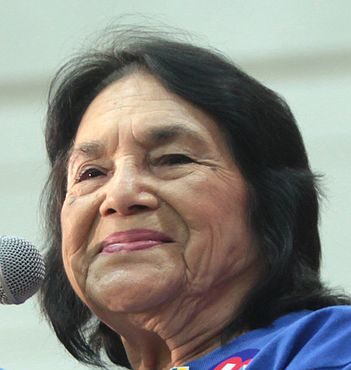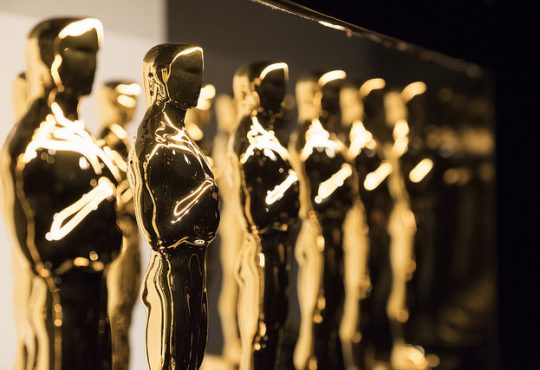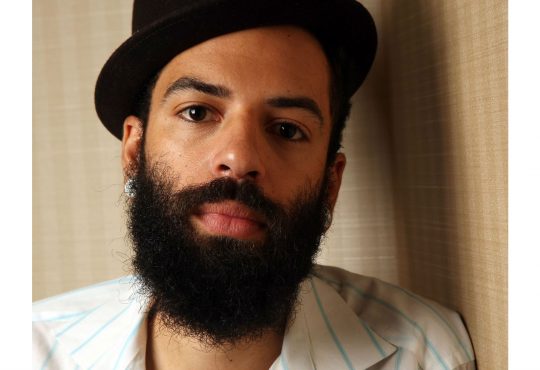By Georgia Gustavson
Back in Russia in 2012, Vladimir Putin was on every T.V. channel, flooding the media with his promising messages as the inevitability of his fixed “election” to the Russian presidency drew near. One act that cut through all the noise and reverberated around the world, however, was a “punk prayer” shouted in the Cathedral of Christ the Savior, pleading to make Putin go away. Donned in neon dresses and fluffy face masks, members of Pussy Riot traded their freedom for a singular moment of protest in recent Russian history.
Their loud feminist punk performance art and now infamous name captured the attention of people already in established democracies. Worldwide support and solidarity from people in the music community ranging from Kim Gordon to Paul McCartney put the Russian government under a watchful eye, at least for a time. Now out of prison after being incarcerated for the church incident, Maria Alyokhina is touring the US with fellow member of the Pussy Riot collective Ksesnia Zhivago, in hopes of spreading their democratic, humanitarian messages once again. On Feb. 8, they spoke in Seattle at the Neptune with the accompaniment of two short film screenings to share their perspectives, and with Putin up for re-election in 2018 for what is now going to be a six-year presidential term, and new anti-democratic laws springing up at a faster pace, their voices need to be heard more than ever.
“This is the second screening of this film in the universe,” moderator Mariana Markova said to an energized, packed audience.
She was speaking of “Pussy Riot versus Putin,” a film made by affiliates of the collective from a perspective so intimate that audiences could see shots from inside prison cells, or from the back of police vans where arguments exploded among arrested citizens who were on opposite sides of the political spectrum. Members from the Russian Orthodox Church, an institution now fiercely linked to Putin’s regime, were seen harassing young protestors, pouring holy water on them and starting fights; a few shots later, Pussy Riot were recalling their rights or bravely calling out their own fixed trials in the middle of the courtroom.
For a country where journalism is so highly monitored and in line with the government’s agendas, seeing such intimate and candid footage was vital to showing Russia and the world what Pussy Riot was up against.
“Their ‘punk prayer’ broke no laws in Russia, so [the government] created a new article justifying jail time for those who have ‘offended religious people’s feelings,’ you can’t disprove feelings,” speaker and music producer Alexander Cheparukhin said.
This isn’t a singular case. While in jail, Alyokhina met a 19-year-old man given two years and three months in prison for living near a building with an anti-Putin message painted on it. This had broken a law made only three years ago. If the media, church and state weren’t enough, the passivity of many of the witnesses to Pussy Riot’s protest performances in the film attested to how much the movement is up against, and how much support it needs.
“I found people [in Russia] more fatalistic about change, not that they didn’t want it … [it’s hard to] speak out against authority in a state where many people fear doing so, or believe that it won’t make a difference, or both. I think in any society, it’s relatively rare for ordinary people to feel empowered enough to engage in collective action,” said University of Puget Sound Professor Jennifer Utrata, who did anthropological fieldwork in a provincial area outside of Moscow.
Alyokhina; however, feels absolutely determined. At the talk, speaking in bursts of English and fractured Russian at hyper speeds, she voiced both the possibility and urgency of a more democratic Russia. Now, with this tour, Pussy Riot can rise from the tier of buzzwords and spectacles within the public eye to a movement with highly articulated motives and more informed support from around the world. When asked by an audience member how she thinks people can and want to reclaim Russia when Putin allegedly has 80 percent public support, she curtly responded.
“You know, I believe Stalin had about 101 percent support when he was in charge,” she said. Alyokhina admitted that maybe she was in a special situation, but no one that she knew personally was apathetic about changing Russia.
Hannah Houser, sophomore at University of Puget Sound and Wixen officer, was inspired by Alyokhina’s drive, but also felt that many of the issues they were facing were things that an established democracy takes for granted or doesn’t actively speak out against. She noted that many women’s rights issues were mentioned, such as sexual health, extreme sexual harassment in public, traditional motherly gender role indoctrination; and the threat of nationwide abortion bans were addressed here during second wave feminism in the 70s. Though more extreme in some cases, many of the issues in Russia were relatable, and thus gave reason for westerners to stand in solidarity.
Some of Pussy Riot’s agendas have shifted since Nadezhda Tolokonnikova and Alyokhina’s time in prison. After experiencing the poor conditions of the facility where she resided, sewing police uniforms for 12 hours a day alongside Russian women, 85 percent of which were jailed for nonviolent drug offences, Alyokhina began to challenge the treatment of prisoners and filed four lawsuits against the prison administration, three of which she won. Her successes show that there is some hope for justice, and projects to protect prisoner’s rights have been initiated.
Justice in the name of feminism, democracy, and basic human rights were all intertwined during the lecture, just as all systemic injustices relate to one another. As Alyokhina asks us to learn how to be empowered from others in more democratized places in the world, we can learn from them about what to prioritize. They noted that the use of social media makes it even easier to support their faraway cries for true democracy, and they hope to further use it as a weapon. As the feminist Olympia punk band Bikini Kill’s song “Rebel Girl” blared out of speakers as a large crowd exited, it was easy to see the parallels between their world and our own. For a time, Seattle may be a bit safer for Pussy Riot than their home, but when they come back, they could have more assuring support than when they left.
“We do not have time to think about security. We just have to go for it,” said Alyokhina.




